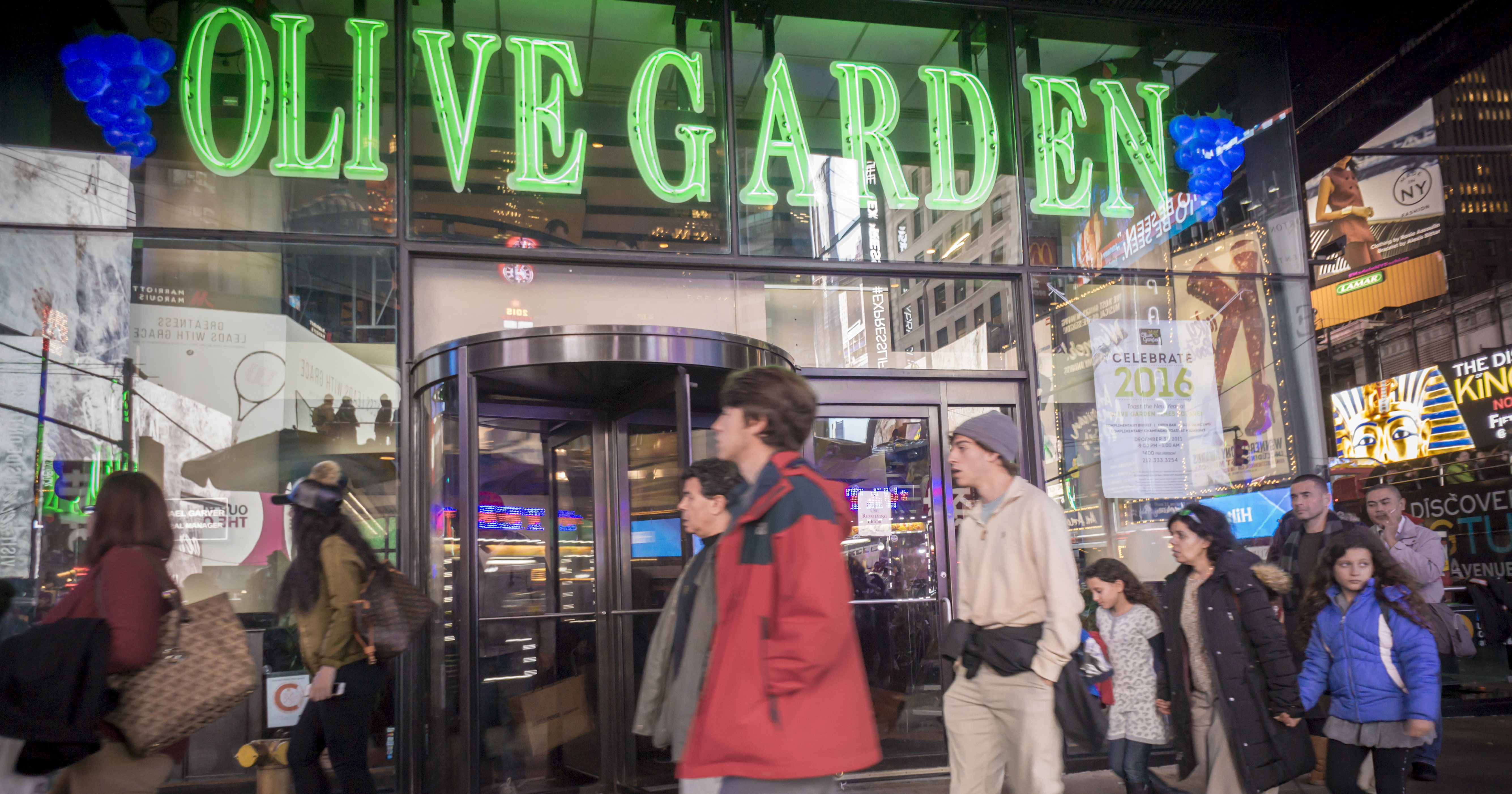
The Good Food Now campaign has seen 130,000 protesters calling on Olive Garden, and its parent company Darden Restaurants, to improve the way it operates. Darden is the leading casual-dining operator and employer in the US, earning $6.7bn in sales at more than 1,500 restaurants worldwide. Olive Garden is its biggest brand.
Demonstrations were held across the US in New York City, Washington DC, Chicago, Los Angeles, Boston and San Francisco. More than 130,000 people have signed a petition to demand changes, among them a 20% reduction in meat and dairy purchases, the implementation of higher-than-industry animal welfare standards and the introduction of a wider range of local and organic options.
“While Olive Garden claims to be sourcing its food responsibly, serving meat and dairy produced in polluting factory farms with routine antibiotics is anything but responsible,” said Kari Hamerschlag, deputy director of Friends of the Earth’s Food and Technology Program. “To stay competitive, Olive Garden must give food-conscious families what they want: healthier, local and organic options — including more plant-based entrees and more humane meat raised without routine antibiotics.”
The campaign is a partnership of organisations including Friends of the Earth, The Food Chain Workers Alliance and the Animal Welfare Institute. It has gained support online with social media messages using the #GoodFoodNow hashtag.
In addition to changes in the food the restaurants serve the campaign is also asking for an improvement in worker wages. “As the world’s largest employer of tipped workers, Darden could be a leader in advocating for a fair wage for all workers but instead it spends millions lobbying to keep the minimum wage for tipped workers at $2.13,” said Saru Jayaraman, cofounder and co-director of Restaurant Opportunities Center-United.
Phillip Hamilton, associate for Unitarian Universalist Service Committee’s Economic Justice program, said Darden could become an agent for change. “As a major player in the restaurant industry, Olive Garden and its parent company can spearhead reforms that not only improve working conditions for their employees, but can help shift practices across the entire industry,” he said.
In response to the campaign Darden has announced it will phase out gestation crates that severely restrict the movement of pregnant pigs by 2025 and battery cages for egg-laying hens by 2018 from its supply chain.
This represents just a start of what Darden needs to, according to Elizabeth Jardim, director of consumer advocacy at Green America. “Olive Garden needs to meet consumer demand by sourcing more ingredients from local farmers and paying all workers, including those in its supply chain, fairly,” she said.
Tina Nielsen
